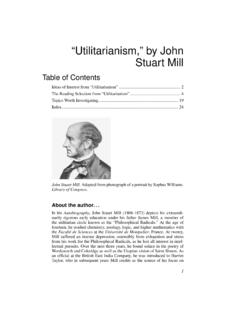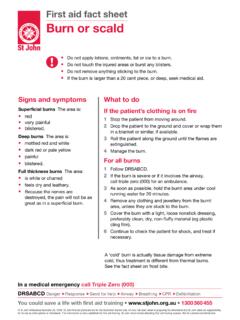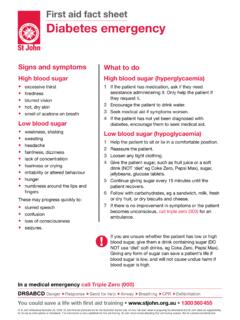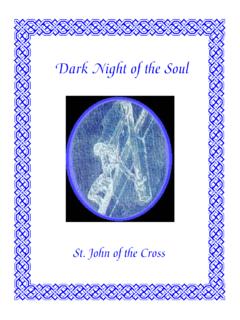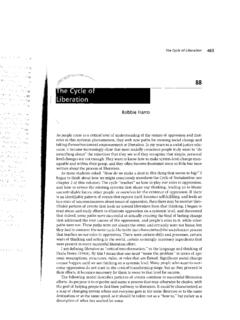Transcription of Whether One May Flee From A Deadly Plague - Reporter
1 The following letter is reprinted with permission of Fortress Press. Martin Luther, Luther s Works, Vol. 43: Devotional Writings II, ed. Jaroslav Jan Pelikan, Hilton C. Oswald, and Helmut T. Lehmann, vol. 43 (Philadelphia: Fortress Press, 1999), 119 One May Flee From A Deadly PlagueTo the Reverend Doctor Johann Hess, pastor at Breslau, and to his fellow-servants of the gospel of Jesus ChristMartinus LutherGrace and peace from God our Father and our Lord Jesus Christ. Your letter, sent to me at Wit-tenberg, was received some time ago. You wish to know Whether it is proper for a Christian to run away from a Deadly Plague . I should have answered long ago, but God has for some time disciplined and scourged me so severely that I have been unable to do much reading or Further-more, it occurred to me that God, the merciful Father, has endowed you so richly with wisdom and truth in Christ that you yourself should be well qualified to decide this matter or even weightier problems in his Spirit and grace without our now that you keep on writing to me and have, so to speak, humbled yourself in requesting our view on this matter so that, as St.
2 Paul repeatedly teaches, we may always agree with one another and be of one mind [1 Cor. 1:10; 2 Cor. 13:11; Phil. 2:2]. Therefore we here give you our opinion as far as God grants us to understand and perceive. This we would humbly submit to your judgment and to that of all devout Christians for them, as is proper, to come to their own deci-sion and conclusion. Since the rumor of death is to be heard in these and many other parts also, we have permitted these instructions of ours to be printed because others might also want to make use of begin with, some people are of the firm opinion that one need not and should not run away from a Deadly Plague . Rather, since death is God s punishment, which he sends upon us for our sins, we must submit to God and with a true and firm faith patiently await our punishment.
3 They look upon running away as an outright wrong and as lack of be-1 On July 6, 1527, Luther suffered a severe attack of cerebral anemia, an ill-ness from which he suffered repeatedly. The deep depression which followed may be one reason for the mild tone of the first portion of this in God. Others take the position that one may properly flee, particularly if one holds no public cannot censure the former for their excellent deci-sion. They uphold a good cause, namely, a strong faith in God, and deserve commendation because they desire every Christian to hold to a strong, firm faith. It takes more than a milk2 faith to await a death before which most of the saints themselves have been and still are in dread. Who would not acclaim these earnest people to whom death is a little thing? They willingly accept God s chastisement, doing so without tempting God, as we shall hear later it is generally true of Christians that few are strong and many are weak, one simply cannot place the same burden upon everyone.
4 A person who has a strong faith can drink poison and suffer no harm, Mark 16 [:18], while one who has a weak faith would thereby drink to his death. Peter could walk upon the water because he was strong in faith. When he began to doubt and his faith weakened, he sank and almost When a strong man travels with a weak man, he must restrain himself so as not to walk at a speed proportionate to his strength lest he set a killing pace for his weak companion. Christ does not want his weak ones to be abandoned, as St. Paul teaches in Romans 15 [:1] and 1 Corinthians 12 [:22 ff.]. To put it briefly and concisely, running away from death may happen in one of two ways. First, it may happen in disobedience to God s word and com-mand. For instance, in the case of a man who is imprisoned for the sake of God s word and who, to escape death, denies and repudiates God s word.
5 In such a situation everyone has Christ s plain mandate and command not to flee but rather 2 See 1 Cor. 3 Cf. Matt. 14 suffer death, as he says, Whoever denies me before men, I will also deny before my Father who is in heaven and Do not fear those who kill the body but cannot kill the soul, Matthew 10 [:28, 33].Those who are engaged in a spiritual ministry such as preachers and pastors must likewise remain steadfast before the peril of We have a plain command from Christ, A good shepherd lays down his life for the sheep but the hireling sees the wolf coming and flees [ john 10:11]. For when people are dying, they most need a spiritual ministry which strengthens and comforts their consciences by word and sacrament and in faith overcomes death. However, where enough preachers are available in one locality and they agree to encourage the other clergy to leave in order not to expose themselves needlessly to danger, I do not consider such conduct sinful because spiritual services are provided for and because they would have been ready and willing to stay if it had been necessary.
6 We read that St. Athanasius5 fled from his church that his life might be spared because many others were there to administer his office. Similarly, the brethren in Damascus lowered Paul in a basket over the wall to make it possible for him to escape, Acts 9 [:25]. And also in Acts 19 [:30] Paul allowed himself to be kept from risking danger in the marketplace because it was not essen-tial for him to do , all those in public office such as mayors, judges, and the like are under obligation to remain. This, too, is God s word, which institutes secular authority and commands that town and country be ruled, protected, and preserved, as St. Paul teaches in Romans 13 [:4], The gov-erning authorities are God s ministers for your own good. To abandon an entire community which one has been called to govern and to leave it without official or government, exposed to all kinds of danger such as fires, murder, riots, and every imaginable disaster is a great sin.
7 It is the kind of disaster the devil would like to instigate wherever there is no law and order. St. Paul says, Anyone who does not provide for his own family denies the faith and is worse than an un-believer [1 Tim. 5:8]. On the other hand, if in great weakness they flee but provide capable substitutes to make sure that the community is well governed and protected, as we previ-ously indicated, and if they continually and carefully super-vise them [ , the substitutes], all that would be applies to these two offices [church and state] should also apply to persons who stand in a relationship of service or duty toward one another. A servant should not leave his master nor a maid her mistress except with the knowledge and permission of master or mistress. Again, 4 Elector john wrote Luther and urged him and the professors at the univer-sity to leave on account of the Plague and go to Jena.
8 Luther, Bugenhagen, and two chaplains, however, stayed on at Augustine in MPL 30, master should not desert his servant or a lady her maid unless suitable provision for their care has been made somewhere. In all these matters it is a divine command that servants and maids should render obedience and by the same token masters and ladies should take care of their Likewise, fathers and mothers are bound by God s law to serve and help their children, and children their fathers and mothers. Likewise, paid public servants such as city physicians, city clerks and constables, or whatever their titles, should not flee unless they furnish capable substitutes who are acceptable to their the case of children who are orphaned, guardians or close friends are under obligation either to stay with them or to arrange diligently for other nursing care for their sick friends.
9 Yes, no one should dare leave his neighbor unless there are others who will take care of the sick in their stead and nurse them. In such cases we must respect the word of Christ, I was sick and you did not visit me .. [M at t. 25:41 46]. According to this passage we are bound to each other in such a way that no one may forsake the other in his distress but is obliged to assist and help him as he himself would like to be no such emergency exists and where enough people are available for nursing and taking care of the sick, and where, voluntarily or by orders, those who are weak in faith make provision so that there is no need for addition-al helpers, or where the sick do not want them and have refused their services, I judge that they have an equal choice either to flee or to remain. If someone is sufficiently bold and strong in his faith, let him stay in God s name; that is certainly no sin.
10 If someone is weak and fearful, let him flee in God s name as long as he does not neglect his duty toward his neighbor but has made adequate provision for others to provide nursing care. To flee from death and to save one s life is a natural tendency, implanted by God and not forbid-den unless it be against God and neighbor, as St. Paul says in Ephesians 4 [5:29], No man ever hates his own flesh, but nourishes and cherishes it. It is even commanded that every man should as much as possible preserve body and life and not neglect them, as St. Paul says in 1 Corinthians 12 [:21 26] that God has so ordered the members of the body that each one cares and works for the is not forbidden but rather commanded that by the sweat of our brow we should seek our daily food, clothing, and all we need and avoid destruction and disaster whenever we can, as long as we do so without detracting from our love and duty toward our neighbor.
